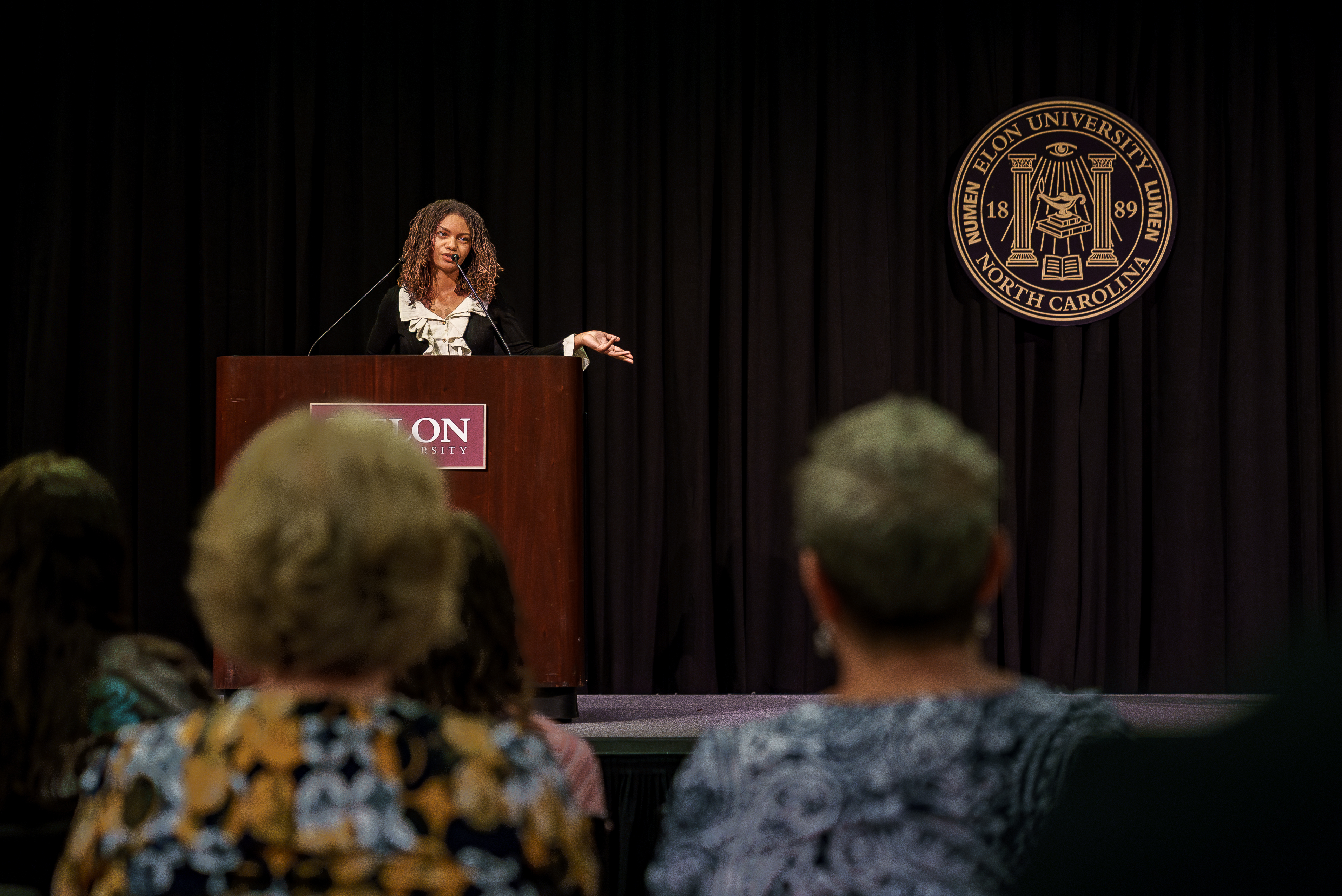In the 2024-25 Common Reading Lecture, Leah Thomas, author of "The Intersectional Environmentalist," detailed her journey from passionate college student to intersectional environmental activist.
In her Common Reading Lecture on Sept. 19 in Alumni Gym, environmental activist and author Leah Thomas urged students to do something unusual: “Sign up for random things.”
It was the random things Thomas signed up for, like becoming a park ranger in a small Kansas community, that started her environmental activism journey and led to writing her 2022 book, “The Intersectional Environmentalist: How to Dismantle Systems of Oppression to Protect People + Planet.”
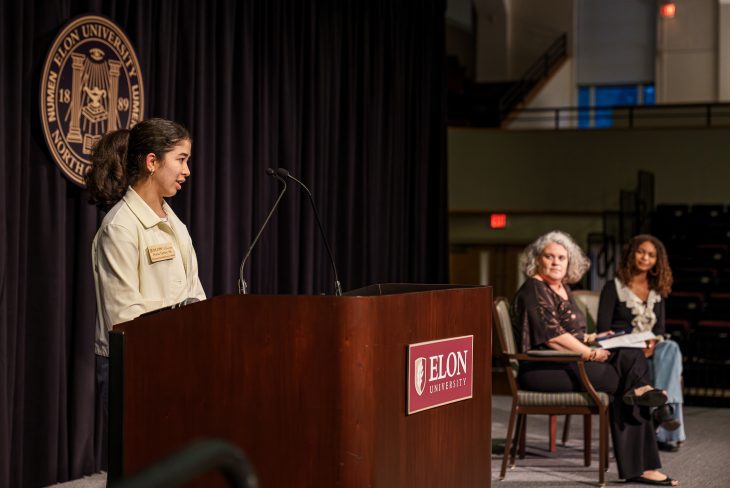
Thomas’ book was chosen as the 2024-25 Common Reading, the beginning of the Elon Core Curriculum, a set of courses and experiences shared by every undergraduate. All new students are provided a free digital copy of the book before coming to Elon and are invited to attend the author’s keynote address, also part of the Elon Speaker Series.
Stories buried in the soil
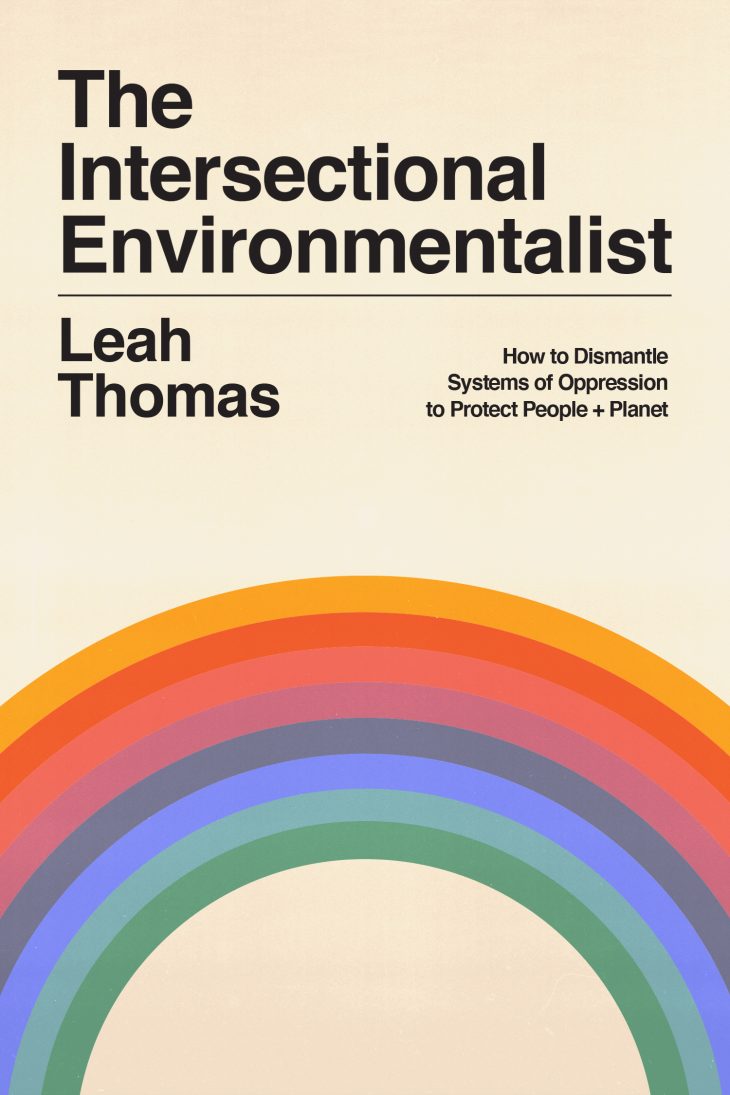
A native of Ferguson, Missouri, Thomas was impacted by the killing of 18-year-old Michael Brown, whose death in 2014 led to protests and uprisings over racial injustice and police brutality in Ferguson. Thomas was a student at Chapman University in California at the time and had recently decided to study environmental science and policy.
“The only thing I could really think of was, ‘How can I focus on this environmental policy when there are people in my community who don’t have the right to breathe,” said Thomas. “In addition to all of the criminal justice reform that needed to happen in St. Louis, people couldn’t even breathe clean air. About 70% of African American communities like Ferguson were struggling with elevated levels of air pollution.”
In response, Thomas turned to nature – going camping for the first time in her life. Then, she signed up for a “random thing,” becoming a park ranger at the Nicodemus National Historic Site in Kansas, the oldest and only remaining Black settlement west of the Mississippi River. Formerly enslaved African Americans left Kentucky at the end of the post-Civil War Reconstruction period to find freedom in the small community.
“That experience completely changed my life,” said Thomas. “There I was, the summer after the Ferguson uprisings, in this beautiful town that I had never heard about, that had a beautiful piece of American history, that I didn’t know anything about. That’s when I realized there were so many incredible environmental stories that are buried in the soil, and I left that experience feeling so empowered because this town had a story of freedom, and I wanted more people to know stories like places like Nicodemus”
While in Nicodemus, Thomas began to hear those stories, speaking with local farmers which expanded her perspective on environmental activism and the lived experiences of people in rural communities.
“At the time, I thought, ‘Oh my God, the people who use pesticides are bad people, they don’t like the earth.’ And there I was, talking to these farmers who cared for the earth so deeply and were doing everything they could to really just feed their families,” said Thomas.
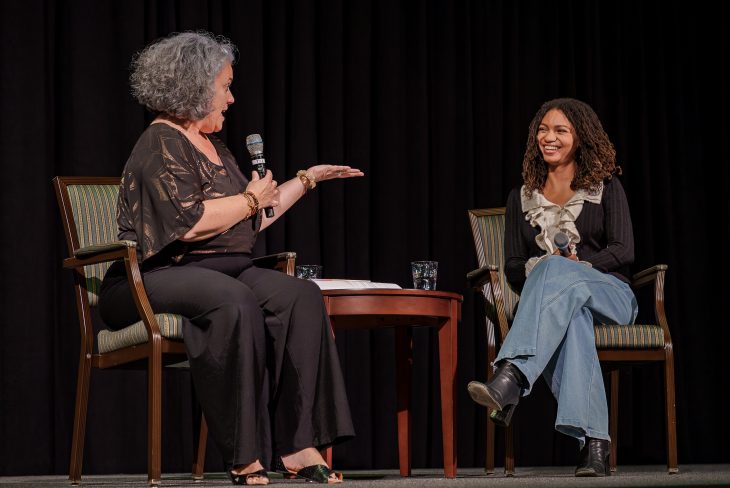
Meet people where they are
The next summer, Thomas became an interpretive park ranger at The White House and President’s Park, which sparked her love for storytelling that later translated into her book. However, it wasn’t until she addressed environmental sustainability with her family that she began to truly explore her book’s topic: intersectionality.
“I realized that the way I was talking to my family (about sustainability), people that I love dearly, I was kind of talking down to them and telling them what they needed to do,” Thomas said. “And then I realized that I should actually meet people where they were at and hear them out.”
After college, Thomas landed her dream job in environmental communications with Patagonia. But amid the COVID-19 pandemic in 2020, she was unsettled by the environmental community’s response to the health crisis.
“I felt this flashback to Ferguson that happened in 2014. It had been six years since the Ferguson uprisings, and yet, I was looking at my peers, and so many of them were just shrugging their shoulders, even at this utopia that I thought I was in,” said Thomas. “A lot of environmental folks were saying, ‘Well, we care about the trees, and this is some people stuff, so, I don’t know about all that.’”
An email from Google
Facing inner turmoil between her dream job and her values, Thomas left Patagonia.
“I didn’t want to be part of any type of environmental movement that did not prioritize human rights and the lives of all people,” she said.
She began posting about intersectional environmentalism on Instagram while working on her book. It was when she received an email from Google that she realized the impact one could have.
“I didn’t know (Google) emailed people,” said Thomas. “And they said ‘Hey, this term is trending, it’s spiking, here’s a map. What is this?’ And it was really cool and I knew if I could write a resource that explains this for people. Maybe I could play a really small role in transforming the environmental movement to address environmental injustices and then also highlight some of those beautiful diverse stories like the one that I learned when I was a Nicodemus.”
In addition to writing her book, Thomas founded the non-profit Intersectional Environmentalist and has been recognized for her work in outlets like Harper’s Bazaar, W Magazine, CNN, ABC News, and NBC and has been honored on lists including EBONY Power 100, TIME100 Next, and INSIDER’s Climate Action 30.
Joy is activism
As Thomas stayed behind in Alumni Gym following her lecture, students lined up to meet her, have their books signed and take smiling selfies.
“I thought the lecture was really insightful,” said Alexia Llamas, ’28, who stayed after the lecture to meet Thomas. “Especially since I’m Latina and my community has always been a big part of the sustainability movement, but it’s not something we do on purpose, sustainability is part of our everyday lives. So, when she talked about that in the book, I felt the same way.”
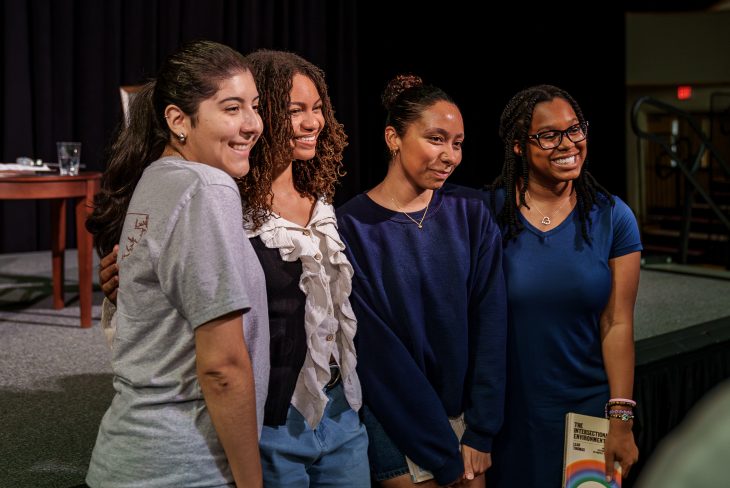
Those smiling faces are something Thomas encouraged the audience to keep in their activism: joy. The rainbow on the cover of her book connects that theme.
“Joy can be a practice of activism,” she said. “When you turn on the news, and you see all these scary headlines and terrifying things that are happening, letting that take away your joy is just giving into the status quo and the doom and gloom. But when you see all of those things and say, instead, I’m going to find community, I’m going to show up, I’m going to be an engaged citizen, I’m going to continue to fight for the things that I care about.”



